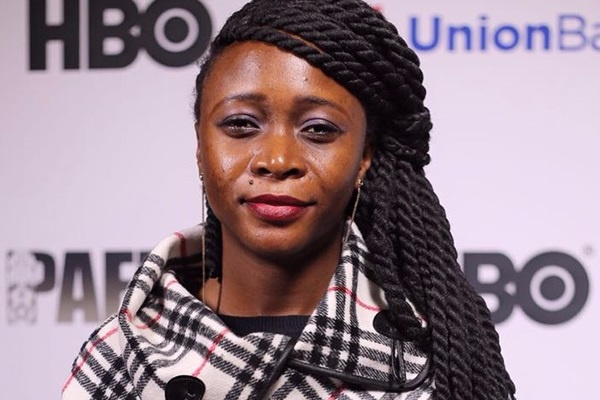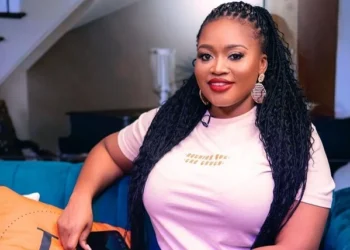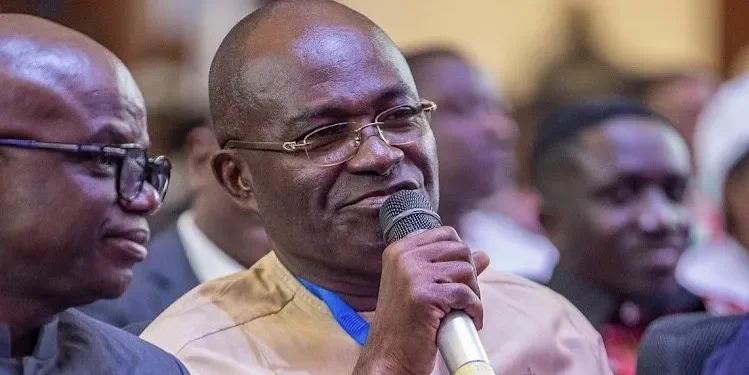In recent years, Ghanaian filmmakers have increasingly viewed platforms like Netflix as both a goalpost and a benchmark of success.
Having a film on Netflix is often seen as the ultimate validation — international reach, prestige, revenue. However, leading voices in Ghana’s film and arts sector are warning against putting all hopes on Netflix.
They argue that the platform’s entry requirements, business model, and global dynamics don’t always align with the strengths, constraints, and long‑term needs of Ghanaian film.
Ghanaian filmmaker Leila Djansi has cautioned local filmmakers against over-reliance on Netflix, arguing that the platform is not the ultimate solution for building a sustainable film career.
Speaking on her social media page, Djansi explained that Netflix deals can often be restrictive and not lucrative enough for smaller markets.
“Why are Ghanaians always overly excited about Netflix? In other territories, filmmakers are rejecting Netflix minimum guarantees because they’re too low and rights-restrictive.”
Leila Djansi
Djansi further noted that Netflix’s focus has shifted toward IP-driven content such as comics, novels, sequels, and celebrity documentaries, often favoring South African projects over those from smaller African markets. “Netflix is NOT the golden ticket. And they are focused on South African content these days,” she added.
She also criticized the lack of transparency in Netflix contracts, highlighting the absence of detailed accounting or revenue breakdowns.
“Is Netflix even giving you accounting? No backend. No revenue waterfall. For a filmmaker chasing a career, that’s not how you build longevity.”
Leila Djansi
Drawing on her personal experience, Djansi revealed that she has handled Netflix deals since 2014, using time-limited licenses and then selling her films to other platforms to maximize revenue. “Some of my titles have not yet even streamed in Africa. I am still holding out for a good deal,” she stated.

Djansi noted that filmmakers must focus on long-term distribution strategies, including a mix of cinema, TV, subscription-based streaming, and ad-supported platforms, rather than chasing the allure of a single streaming platform.
Netflix has specific standards for technical quality, storytelling style, data analytics, and market expectations. Some Ghanaian filmmakers lack the resources, technology, or metrics (e.g. viewership analytics, audience data) to meet those standards.
Lydia Forson noted that one can’t just upload; there are many criteria and “numbers” required that many local filmmakers don’t yet have.
The rise of Netflix and similar platforms presents a powerful opportunity for Ghanaian filmmakers: global exposure, financial incentives, higher production standards. But this opportunity comes with risks.
An obsession with Netflix could lead to misplaced priorities, under‑serving local audiences, stifling creative experimentation, and becoming overly dependent on external gatekeepers.
For Ghana’s film industry to grow sustainably, it must walk a balanced path: embracing global platforms while nurturing local ecosystems, improving quality without forsaking authenticity, and ensuring that the drive for prestige does not eclipse the passion for storytelling.
In that way, Ghanaian films both conquer streaming platforms and deeply resonate at home—and that dual achievement would be the truest measure of success.
Ghanaian Filmmakers Urged to Treat Film as Business

Ghana is blessed with creative talent, compelling stories, and a growing appetite for its culture at home and abroad. Yet many of its filmmakers struggle to make ends meet, often treating productions more as cultural contributions than viable businesses.
The result is inconsistent quality, limited reach, insufficient returns, and gradual discouragement among promising creators.
To change that trajectory, the industry must adopt a new mindset—one that values filmmaking not only for art or social good, but as a business enterprise that demands careful planning, sustainable revenue models, and accountability.
Award-winning Ghanaian filmmaker called on local creators to rethink their approach to filmmaking, emphasizing that it is first and foremost a business.
Leila Djansi criticized the current system in Ghana, where filmmakers are forced to play both creator and distributor, which she described as unsustainable.
“In Ghana, filmmakers are forced to play both creator and distributor. That’s unsustainable. Your job is to make the film. Get someone else to sell it. Collaborate. Build distribution networks across West Africa, into the diaspora, and then let streamers become an option, not a lifeline.”
Leila Djansi
She urged filmmakers to engage professional distributors and plan their projects from the script stage with a strategic marketing and distribution roadmap. “From script stage, you must think about your marketing and distribution strategy: Cinema → TV → SVOD → AVOD/FAST. That waterfall ensures your film earns over years, not just once,” Djansi explained.
Beyond distribution, Djansi stressed the importance of storytelling that resonates with audiences. She criticized repetitive or uninspiring narratives;
“While people are telling stories about planting potatoes in space, y’all are still telling us how Ama cannot find love and then she met Kofi. Remember, your audience has options. The world has become so small.”
Leila Djansi
Djansi also highlighted that reliance on government funding is not a solution, given the country’s pressing health and infrastructure needs. “Stop begging the government for money when maternity wards and stroke units across the country can’t even boast of a single patient monitor,” she said.
If Ghanaian filmmakers want not just to make films but to build an industry—one that sustain livelihoods, attract investment, and reflect Ghanaian culture globally—they must rethink their mindset. Filmmaking must be treated as business.
The difference between films that fade and films that endure lies not just in heart or story, but in discipline and structure. Ghana’s film industry has all the ingredients; now it’s time to cook with a recipe that delivers both art and business success.
READ ALSO: Pressure Alone Won’t Stop Illegal Gold Mining – Prof. Botchwey






















